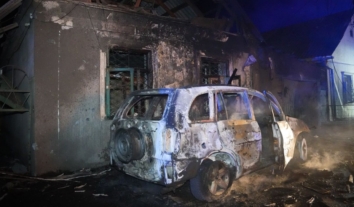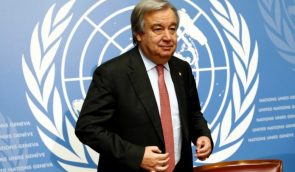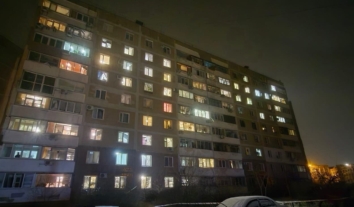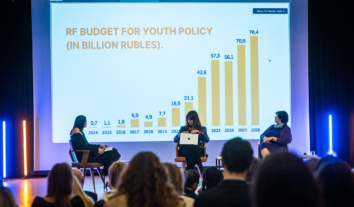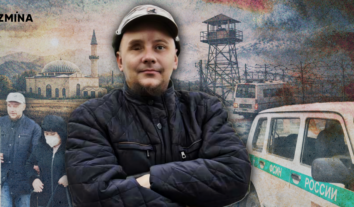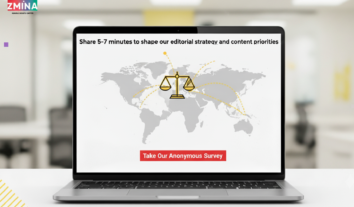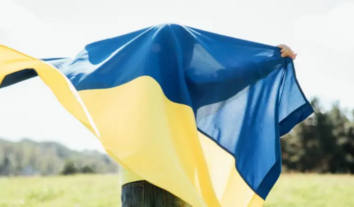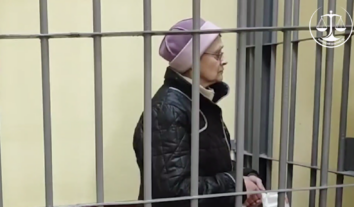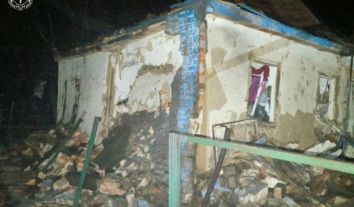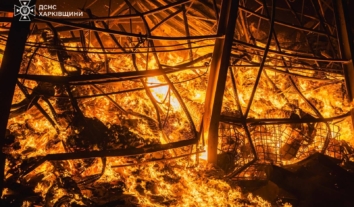Expert warns about three challenges to proper documentation of international crimes and preservation of evidence of Russian aggression against Ukraine
The absence of a unified state strategy for documenting the events of the Russian-Ukrainian war, cuts in funding for human rights projects, and aggressive Russian propaganda create risks of losing years of work in documenting war crimes, stated Anton Drobovych, Head of the Human Rights and War Memorilization Centre at the Kyiv School of Economics, in a column for Ukrayinska Pravda news outlet.
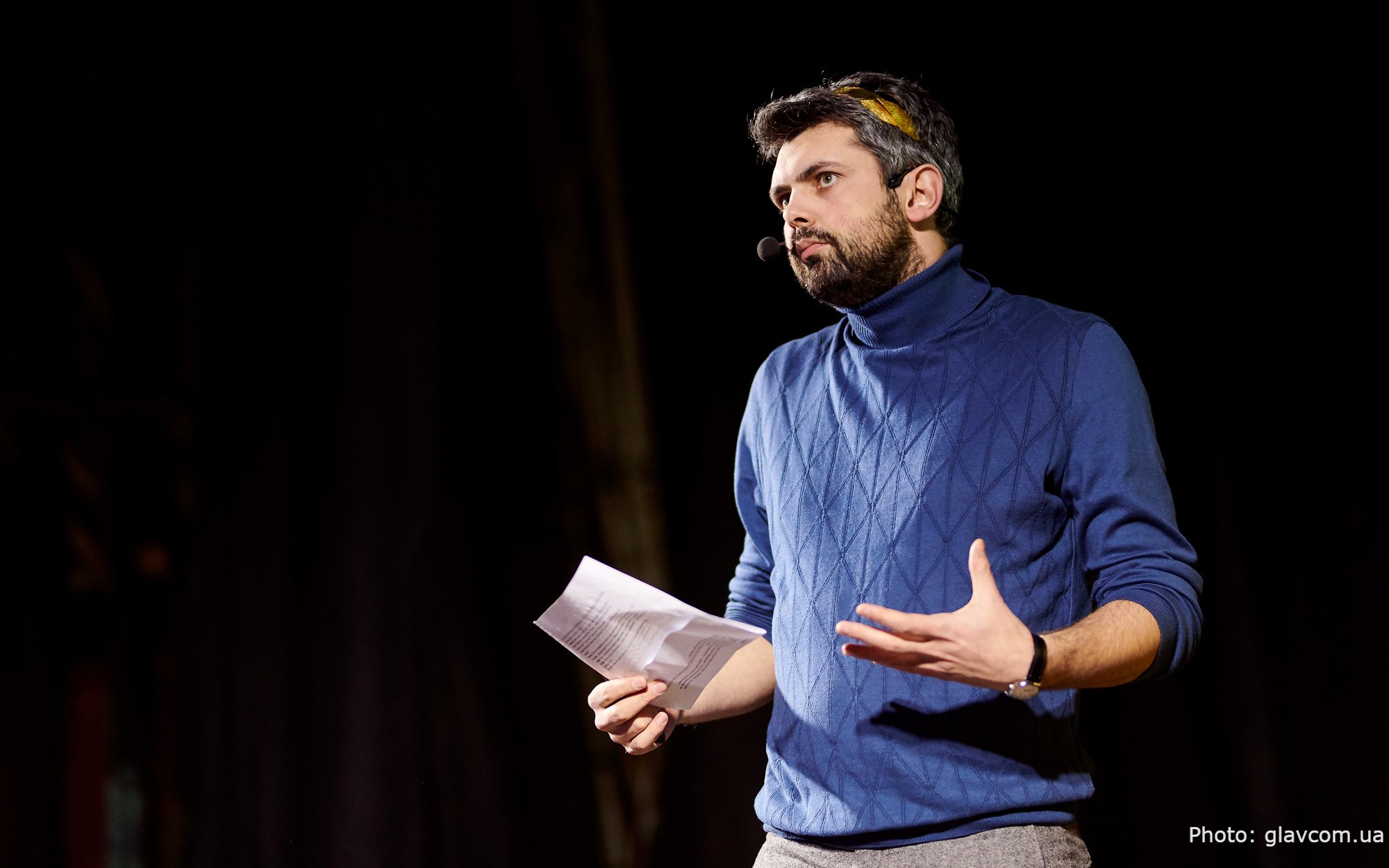 Anton Drobovych
Anton DrobovychDrobovych reminded readers that since the onset of the Russo-Ukrainian War in 2014, dozens, if not hundreds, of different organizations and people have been documenting events related to it. This includes both individuals and legal entities within Ukraine – government bodies, specialized departmental units and centers, human rights organizations, academic institutions, individual specialists, as well as numerous international organizations – UN bodies, monitoring missions, researchers, non-profit organizations, lawyers, and advisors.
The projects and initiatives documenting important information, events, and data about the war of Russians against Ukraine are extremely diverse in form and cover a very broad thematic field. This is a spectrum that includes practically everything from official registers and legal procedural documents created, for example, within the framework of criminal justice to artistic, historical, and journalistic materials that fully correspond to the broader concept of a “document of the era.”
Drobovych expressed the conviction that the diverse documentation is also critically important for criminal and administrative justice, the restoration and preservation of national memory, historical and cultural studies, etc. The documentation is crucial for all components of transitional justice, but especially for ensuring the right to truth. To understand the variety of what has already been documented, it is enough to look through even a cursory list of projects, products, platforms, and initiatives implemented in Ukraine:
- The War Archive platform for preserving digital data about the war, by the NGOs “Docudays UA” and “Infoscope”;
- The Wartime Art Archive, initiated by the NGO “Museum of Contemporary Art”;
- Reports of the Ombudsman of Ukraine, for example, the “Special Report on the Situation in the Territories of Ukraine Temporarily Occupied by the Russian Federation” from 2025;
- Investigations and documents (including those uploaded to the specialized I-DOC program) by the Truth Hounds team;
- The monitoring project “Russia Killed Them: Figures of Ukrainian Culture” by PEN Ukraine, in cooperation with partner organizations;
- The “Voices of Civilians” collection of video, audio stories and interviews by the Rinat Akhmetov Foundation’s Museum;
- A list of cultural heritage sites affected by Russian aggression, created by the NGO “Crimean Institute for Strategic Studies”;
- The multilingual online journal and art book about life during the war, “Living the War,” by curator Volodymyr Kadyhrob;
- The open archive of inscriptions by Russian occupiers, “Wall Evidence,” by the cultural institution “Mizhvukhamy”;
- The “Russian War Crimes” exhibition (or “Russian War Crimes House” in Davos) in various iterations, created by the PinchukArtCentre team.
This is far from a complete list of actors and products, as it does not, for example, mention materials created by several law enforcement agencies within the framework of investigations. Due to their procedural status, these materials are non-public and will only become available to the public over time.
Drobovych noted that a significant number of organizations involved in documentation have already formed coalitions to cooperate and interact in holding the Russian Federation accountable for its full-scale aggression against Ukraine and related human rights violations. Examples include the initiative “Break the Circle of Impunity for Russia’s War Crimes” (short title “Tribunal for Putin”) and the “Ukraine. 5 AM” coalition.
The expert outlines at least three serious challenges to preserving the work of documentation that we have today:
- The lack of a consistent and comprehensive state strategy for documentation (also related to the absence of an integral state actor in this sphere).
- The aggressive and effective Russian system of falsification, disinformation, and propaganda.
- The generally vulnerable and sometimes inconsistent nature of key initiatives and projects by non-state actors working on documentation.
Drobovych stated that regarding the first challenge, as of today, neither the Office of the President of Ukraine, nor the system of government bodies, nor the law enforcement system has a person, body, or mechanism that would consistently ensure analysis, interaction, coordination, harmonization, strengthening, or support for initiatives and projects in the field of documentation. Although, formally, these processes could be handled by one of the ministries with a logical connection – Ministry of Culture and Strategic Communications, Ministry of Justice, Ministry of Internal Affairs, Ministry of Restoration, or Ministry of National Unity, or one of the law enforcement agencies, in practice, none of them carry out such work.
Drobovych pointed out that the aforementioned, combined with the absence of an adopted national strategy and action plan for documenting the events of the Russo-Ukrainian war, threatens completeness of information and the integrity of preservation and will also necessarily lead to complications or loss of access for citizens and state bodies to such information, or to parts of it, in the future.
“The Muscovites’ goal is not just to create fakes, discredit reliable information, or distort fragments of history, but to completely falsify or relativise reality. One of the most common tools for such “work” is cluttering the information space with numerous absurd and improbable versions, which are disseminated alongside the truth and are intended to confuse anyone who would want to understand the events,” Drobovych elaborated.
He highlighted that regarding the third challenge, over the past six months, a number of documentation and human rights projects have lost grant support and cannot ensure work at the proper level. Others have reoriented to assisting victims and creating informational products and wish to transfer collected data for storage; still others continue to collect materials but need to restructure and receive an official status.
A significant number of initiatives are interested in creating reliable, secure servers where they can duplicate their collections and store them as a backup. Others also need space and auxiliary personnel so that a permanent access point can operate through which investigators, prosecutors, journalists, or historians can familiarize themselves with the materials.
Simultaneously, in the state sector, expenditures on humanitarian and cultural initiatives, including those related to documentation, have been reduced.
Drobovych concluded that in these conditions, the risks of fragmentation of documented information, partial loss of many years of work by professional teams, and institutional memory about the sources and origin of materials are increasing. The overall professional level of the documenters’ community may also decrease, in particular due to the possible transition of some of them to work in other spheres.
According to the expert, potential improvements include:
- Adoption of relevant strategic state documents and action plans in documenting war events;
- Strengthening the infrastructure and resources of the documentation ecosystem. This can be done by introducing targeted grants and programs aimed at strengthening the capacity of institutions and projects working in the field of documentation and enhancing their interaction with each other.
- Creation of a project (state or public-private) that will ensure the permanent preservation of all documents and other important materials about the war. This refers to a kind of national depository or archive of war documents, where all interested organizations can, if necessary, store their materials, provide broader access to citizens, and also obtain a certain official status for them, for example, as part of the National Archival Fund.

